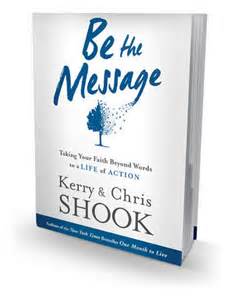About a year ago my wife and I moved into a “retirement community for active, residents 55 and older.” One of my thirthysomething friends came to help us get settled and made an interesting observation: “This is a nice place but call it what it is. You live in an old peoples’ home.” So on we learned that the average age is 84, several residents are over 100, and people close to 55 are nowhere to be seen. We had considered our move carefully, wanted to downsize while we could do it ourselves, undoubtedly made the right decision, and have no desire to leave. But the move stimulated our thinking about adjusting to life events and experiences that come at every age and often aren’t what we expected. Here’s part of what we’re learning.
on we learned that the average age is 84, several residents are over 100, and people close to 55 are nowhere to be seen. We had considered our move carefully, wanted to downsize while we could do it ourselves, undoubtedly made the right decision, and have no desire to leave. But the move stimulated our thinking about adjusting to life events and experiences that come at every age and often aren’t what we expected. Here’s part of what we’re learning.
- Accept what comes to your life, even when you feel like a square peg in a round hole because you don’t fit. Acceptance does not always mean endless frustration or passive submission. We all know people with unanticipated health or career changes who may resist, but who rise to the occasion, accept reality, and mobilize themselves to adapt, thrive, and move on as best they can. God is not surprised at our circumstances. He creates at least some of them, and uses them for good.
- Develop an attitude of thankfulness. My wife and I are blessed. For example, many of our neighbors have disabilities that we don’t have. We can go places because we have a car. Others do not.
- Strongly resist complaining, self-pity, cynicism or bitterness. A lot of this starts in high school and college age years (or later), develops over time, and creates bitter old people that nobody likes.
- Don’t withdraw. Some residents here have different beliefs, values, and attitudes than we do. Many have a backwards-looking perspecti
 ve. But everyone responds when we show friendliness and genuine interest. So let your light shine where you are. Remember the cliché: bloom where you are planted.
ve. But everyone responds when we show friendliness and genuine interest. So let your light shine where you are. Remember the cliché: bloom where you are planted. - Keep fresh. I read broadly. I hang out with younger people, especially students, who are optimistic and like thinking about the future. Respect others, even of they differ from you.
Do you remember Winnie the Pooh? “What time of life is this?” Pooh could have asked. It doesn’t have to be your favorite time. But even tough times can have positive aspects, especially for Christians. What would you add to the above suggestions?




 e to do most of our coaching. Have you noticed how you have fallen into some specialties, perhaps because of how others perceive you or how you identify yourself? For me, that’s helping others go through transitions, finding new life or career directions, adjusting to unanticipated change or making progress in reaching their God-given potential. I’ve been going through some of this personally right now so I appreciate the challenge of shaping the future and not being swept up by the expectations or perspectives of others. How, then, can we help ourselves and our clients shape their futures? Here are some suggestions. I know most of you will think of others.
e to do most of our coaching. Have you noticed how you have fallen into some specialties, perhaps because of how others perceive you or how you identify yourself? For me, that’s helping others go through transitions, finding new life or career directions, adjusting to unanticipated change or making progress in reaching their God-given potential. I’ve been going through some of this personally right now so I appreciate the challenge of shaping the future and not being swept up by the expectations or perspectives of others. How, then, can we help ourselves and our clients shape their futures? Here are some suggestions. I know most of you will think of others.



 I was impressed with Rick Warren’s Purpose Driven Church when it was published in 1995. In contrast his Purpose Driven Life book bored me when it appeared later so I put it aside although it seemed like everyone I knew was reading it. Last week’s newsletter indicated that I finally had read and learned from the revised version, titled What on Earth am I Here For? What follows are random highlights that could be helpful for ourselves and our work with students, coaching clients or others.
I was impressed with Rick Warren’s Purpose Driven Church when it was published in 1995. In contrast his Purpose Driven Life book bored me when it appeared later so I put it aside although it seemed like everyone I knew was reading it. Last week’s newsletter indicated that I finally had read and learned from the revised version, titled What on Earth am I Here For? What follows are random highlights that could be helpful for ourselves and our work with students, coaching clients or others.